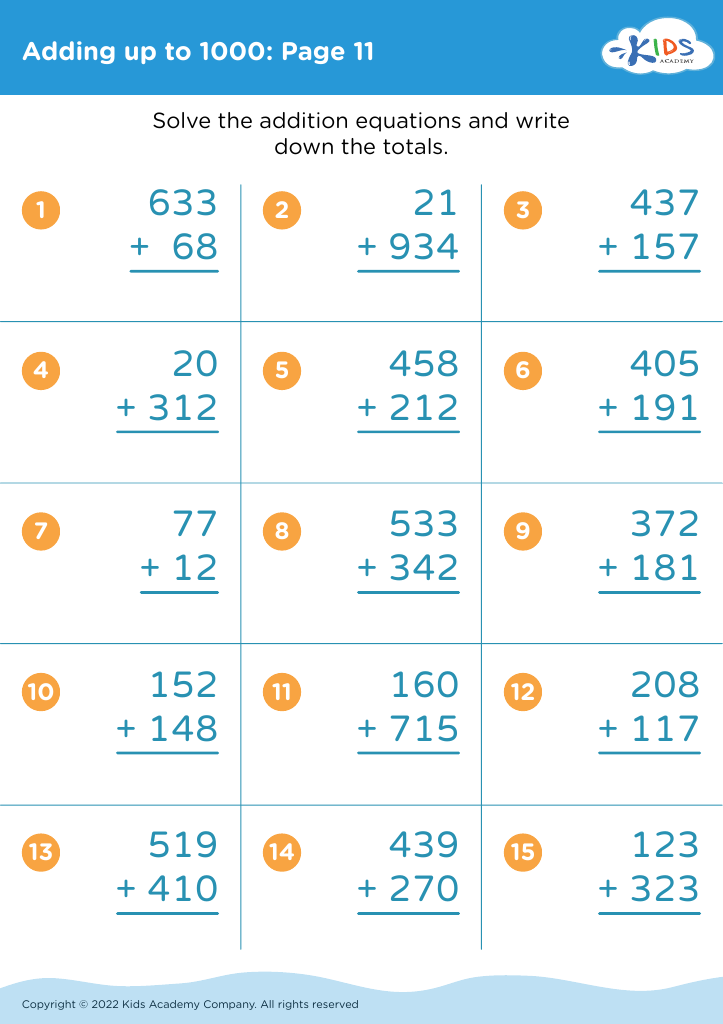Enhance problem-solving Addition Worksheets for Ages 5-9
3 filtered results
-
From - To
Introducing our Enhance Problem-Solving Addition Worksheets, designed specifically for children aged 5-9! These engaging, age-appropriate activities effectively develop crucial math skills by providing a range of problems that nurture logical thinking and boost confidence. Perfect for classroom use or at-home practice, our worksheets are structured to make learning enjoyable and interactive. Each exercise encourages young minds to explore different addition strategies and solve problems creatively, making math both fun and educational. Empower your child today with our expertly crafted worksheets, ideal for building a solid foundation in mathematics through enhanced problem-solving techniques. Try them now and watch your child's skills soar!
Parents and teachers should prioritize enhancing problem-solving skills in addition for children ages 5-9 because it lays a crucial foundation for future academic and real-life success. At this formative stage, developing strong mathematical abilities helps kids build critical thinking, logical reasoning, and analytical skills. When children engage with addition problems, they learn how to break tasks into smaller steps, think sequentially, and recognize patterns. These are fundamental components of effective problem-solving.
Moreover, addition is one of the basic building blocks of arithmetic; mastery of this skill is pivotal for understanding more advanced mathematical concepts later on. It boosts children’s confidence and reduces math anxiety, creating a positive attitude toward learning. Interactive and fun approaches to solving addition problems can also foster a love for math, encouraging children to persevere through challenging tasks.
Additionally, these problem-solving experiences encourage collaborative learning. Children often work together to find solutions, share strategies, and learn from one another, enhancing their social and communication skills. This cooperative environment mirrors real-world scenarios, teaching them the value of teamwork and diverse thinking. Thus, focusing on enhancing problem-solving in addition equips young learners with a versatile toolkit that will be beneficial throughout their educational journey and beyond.




















